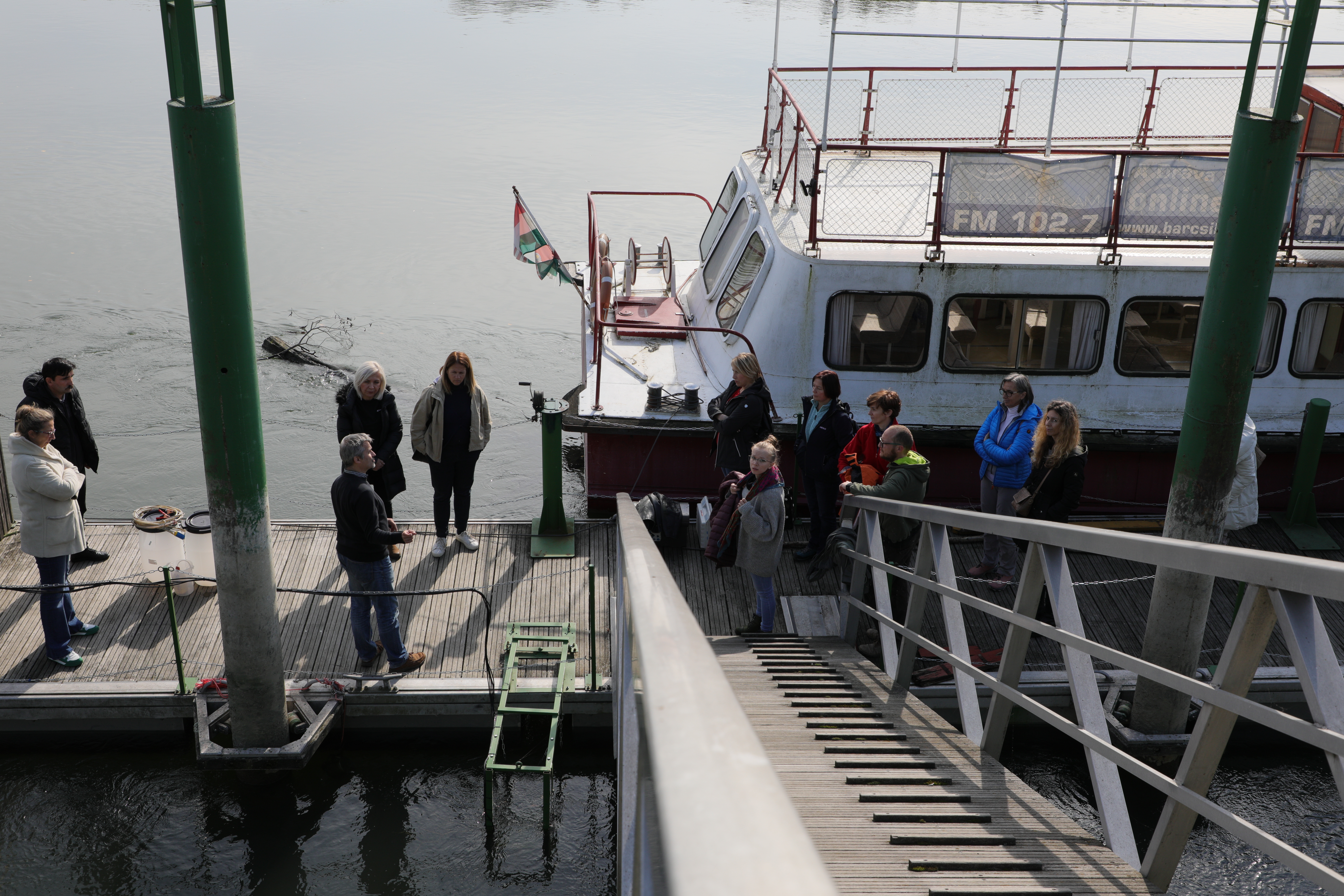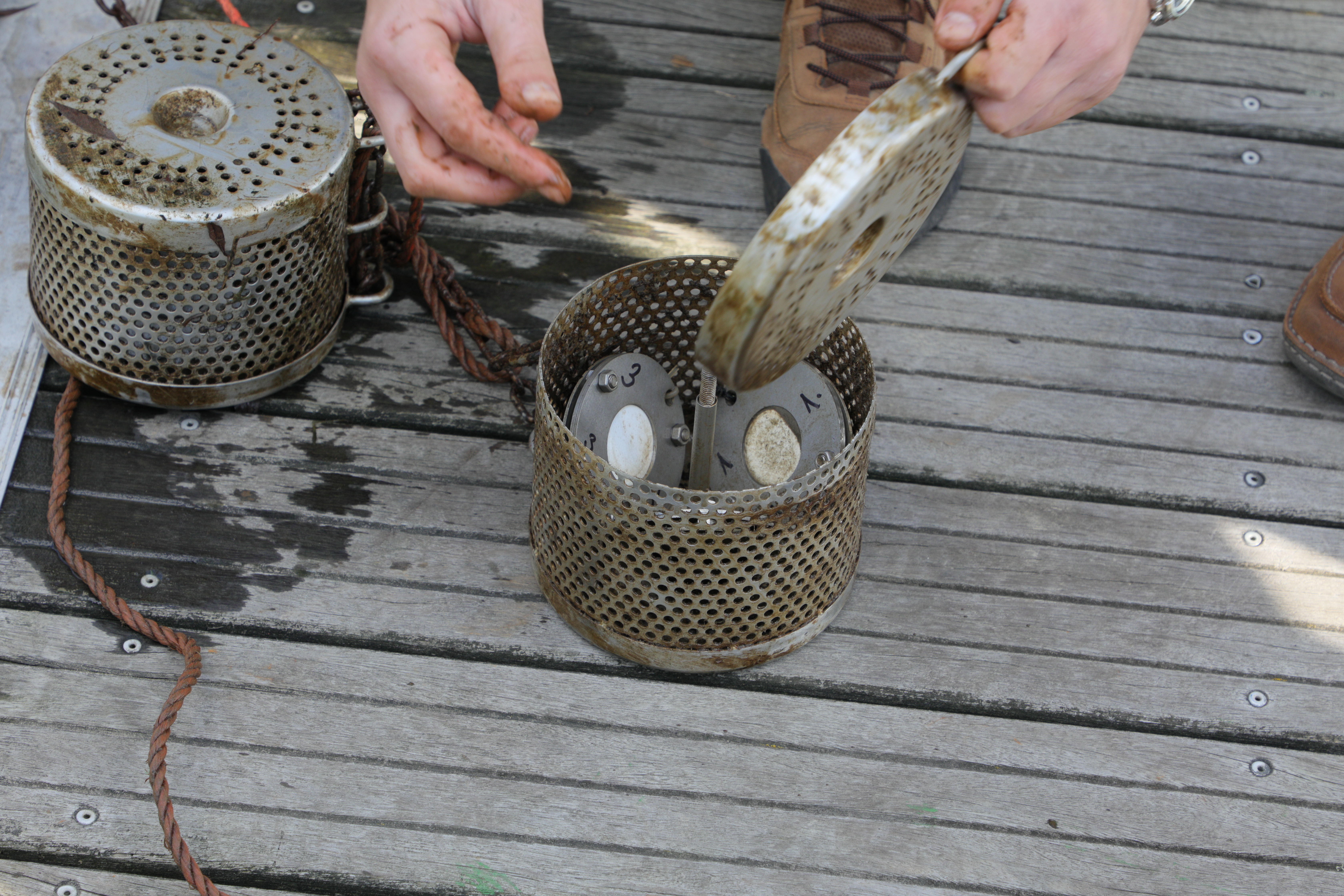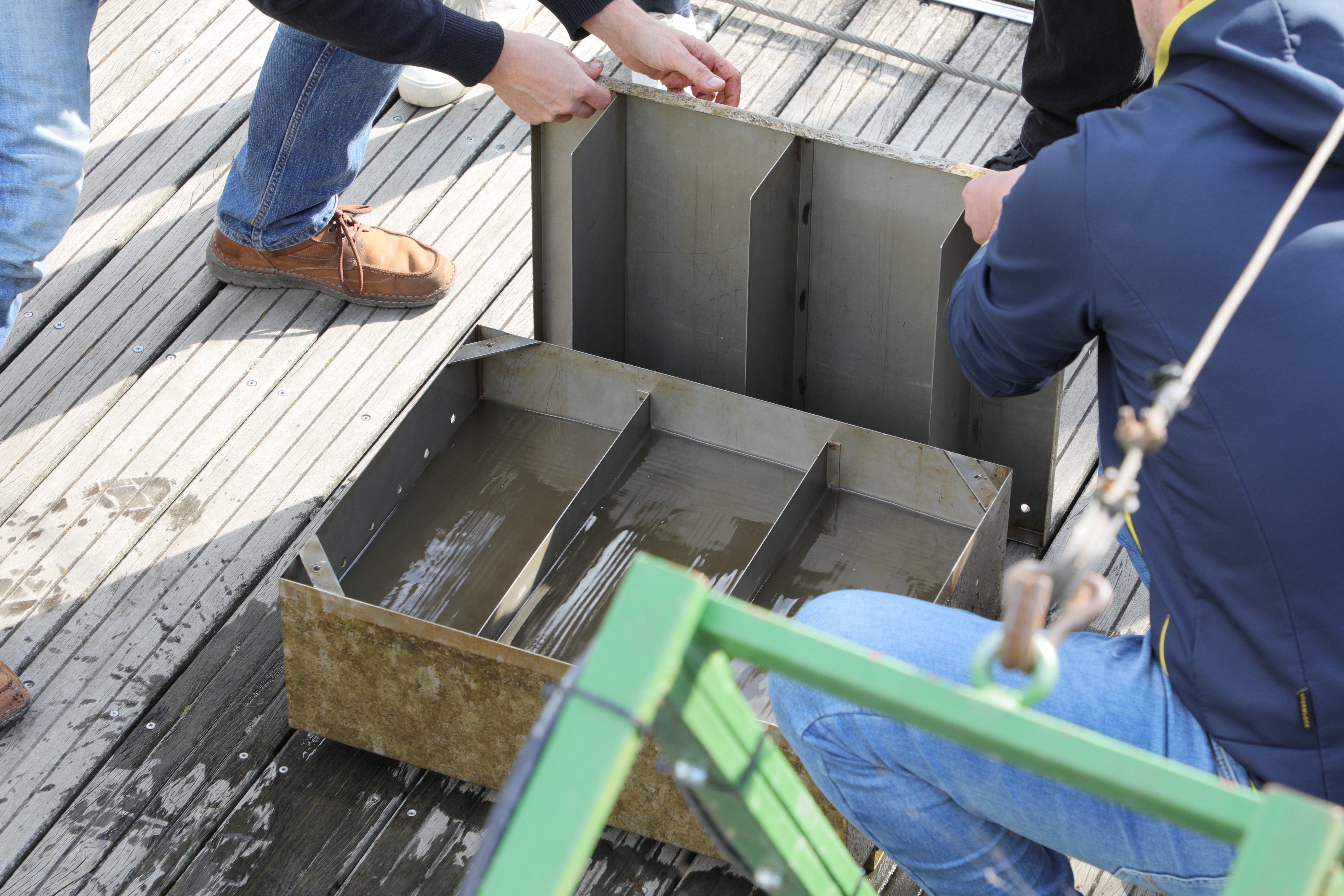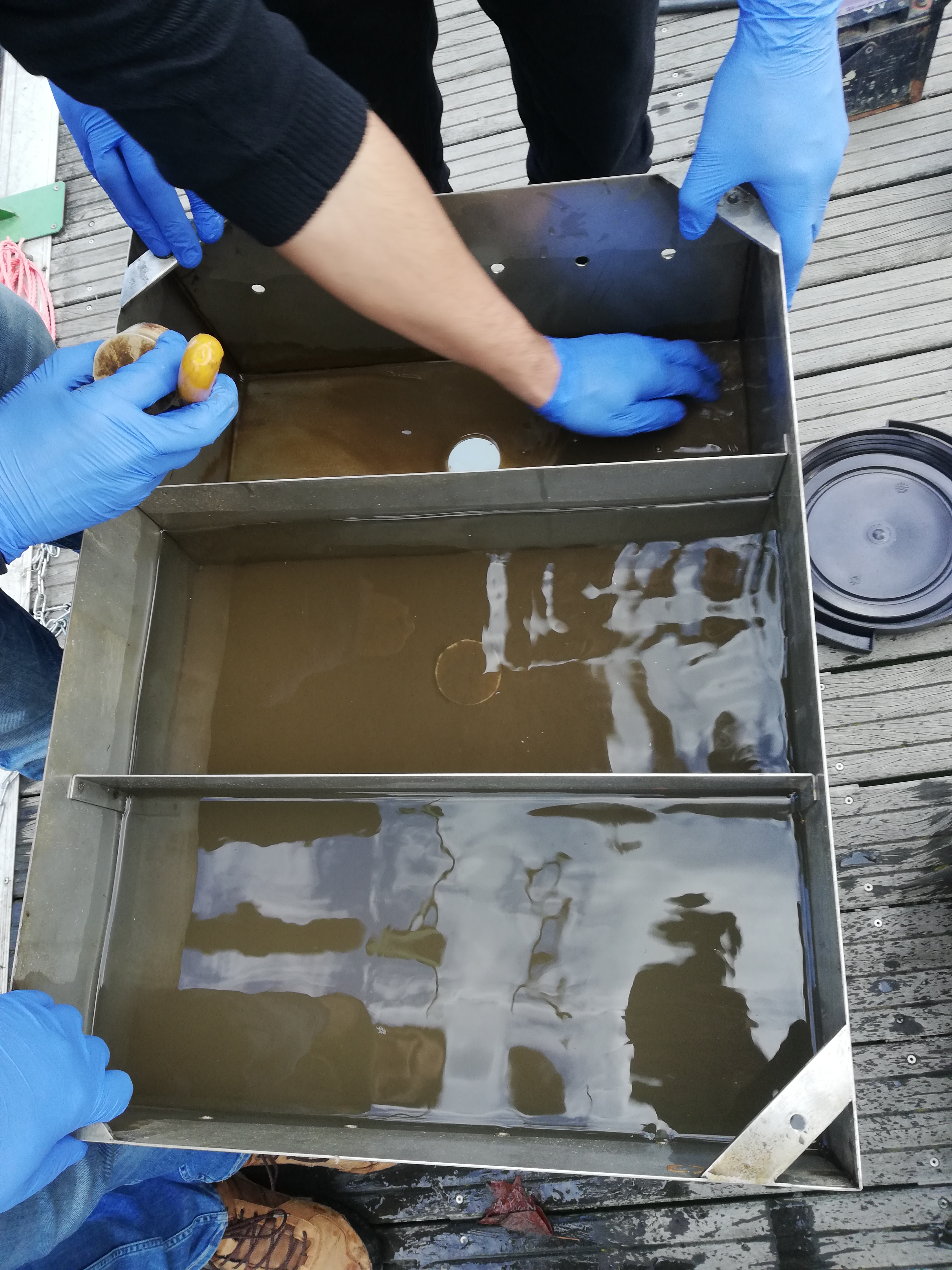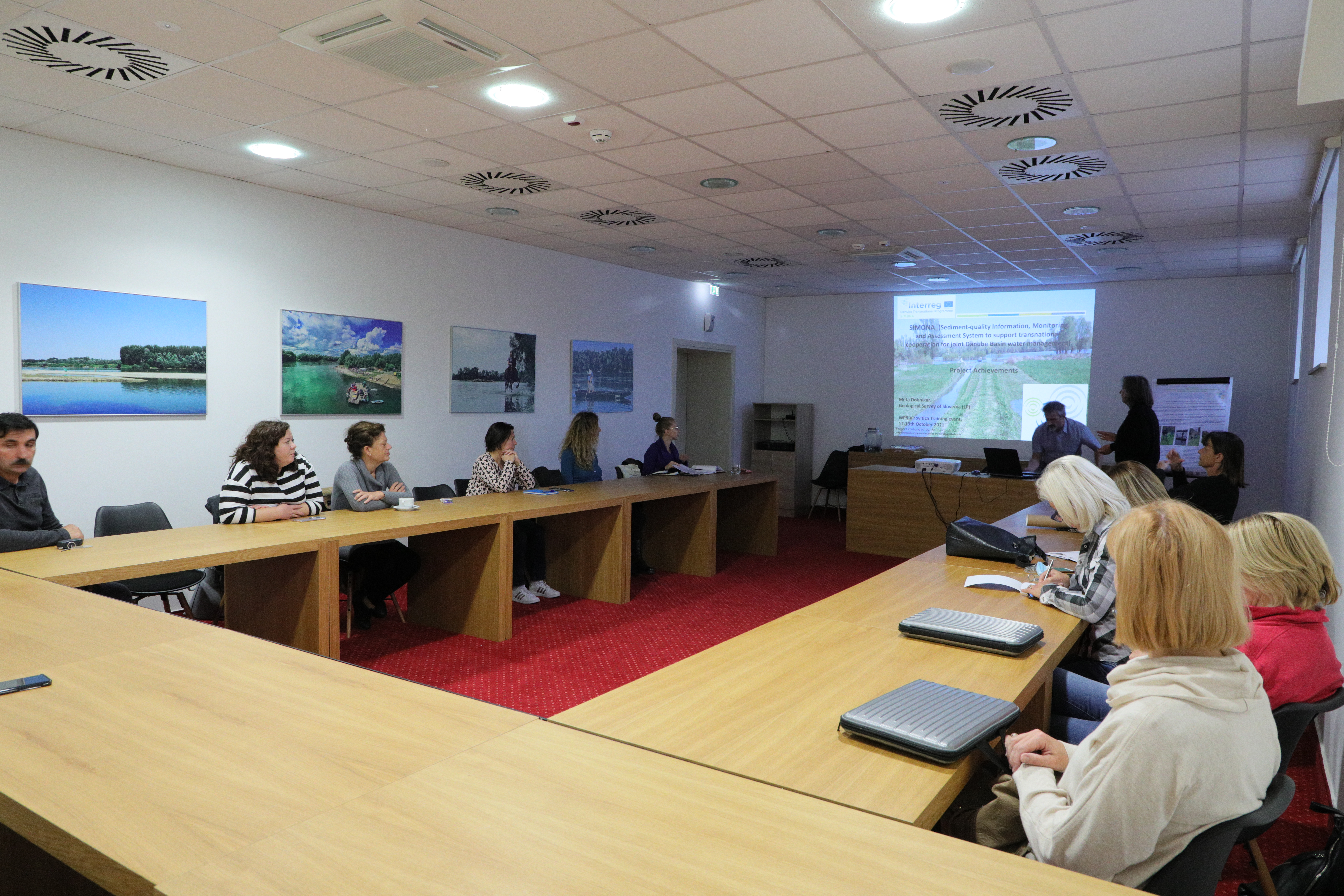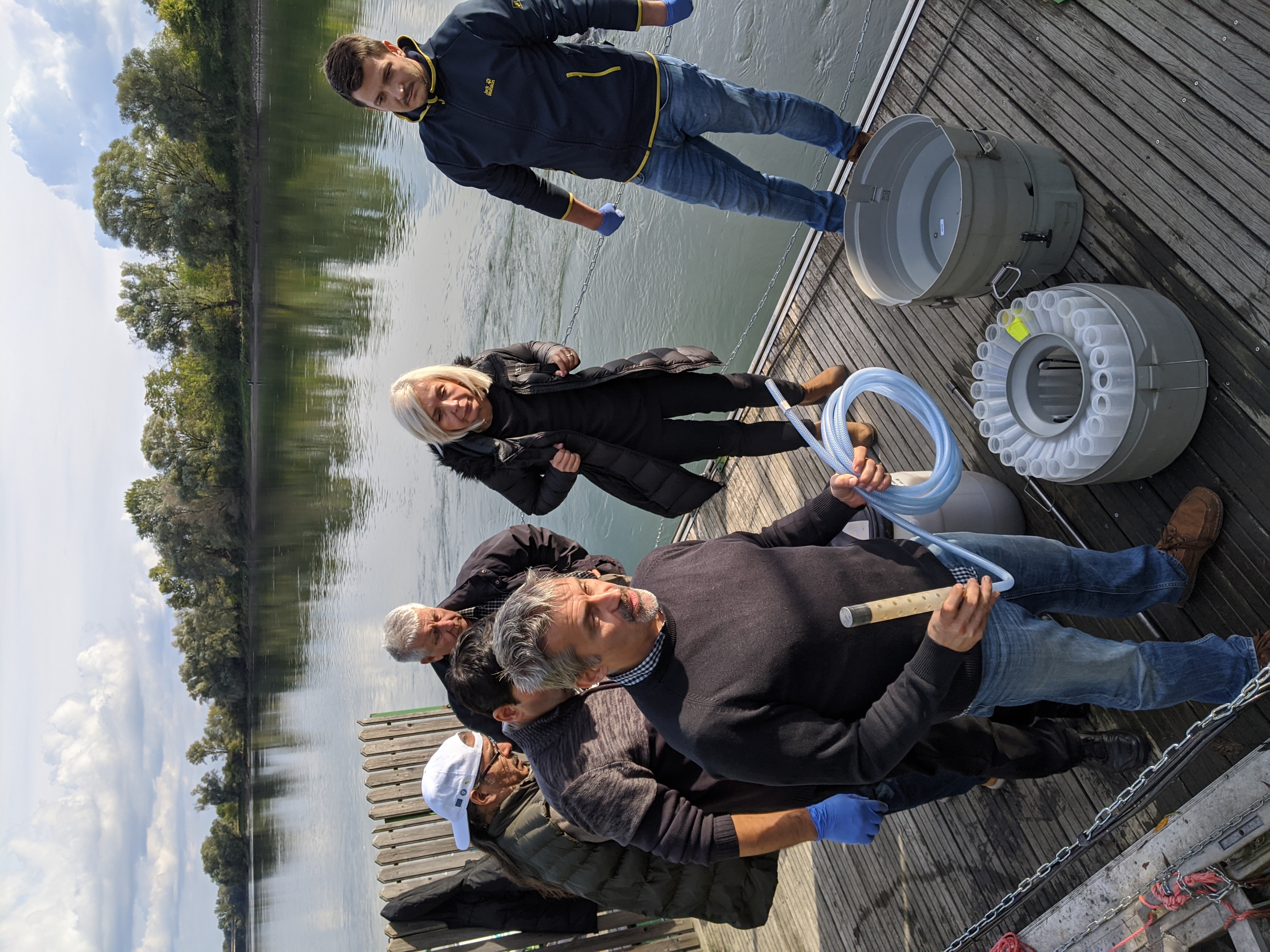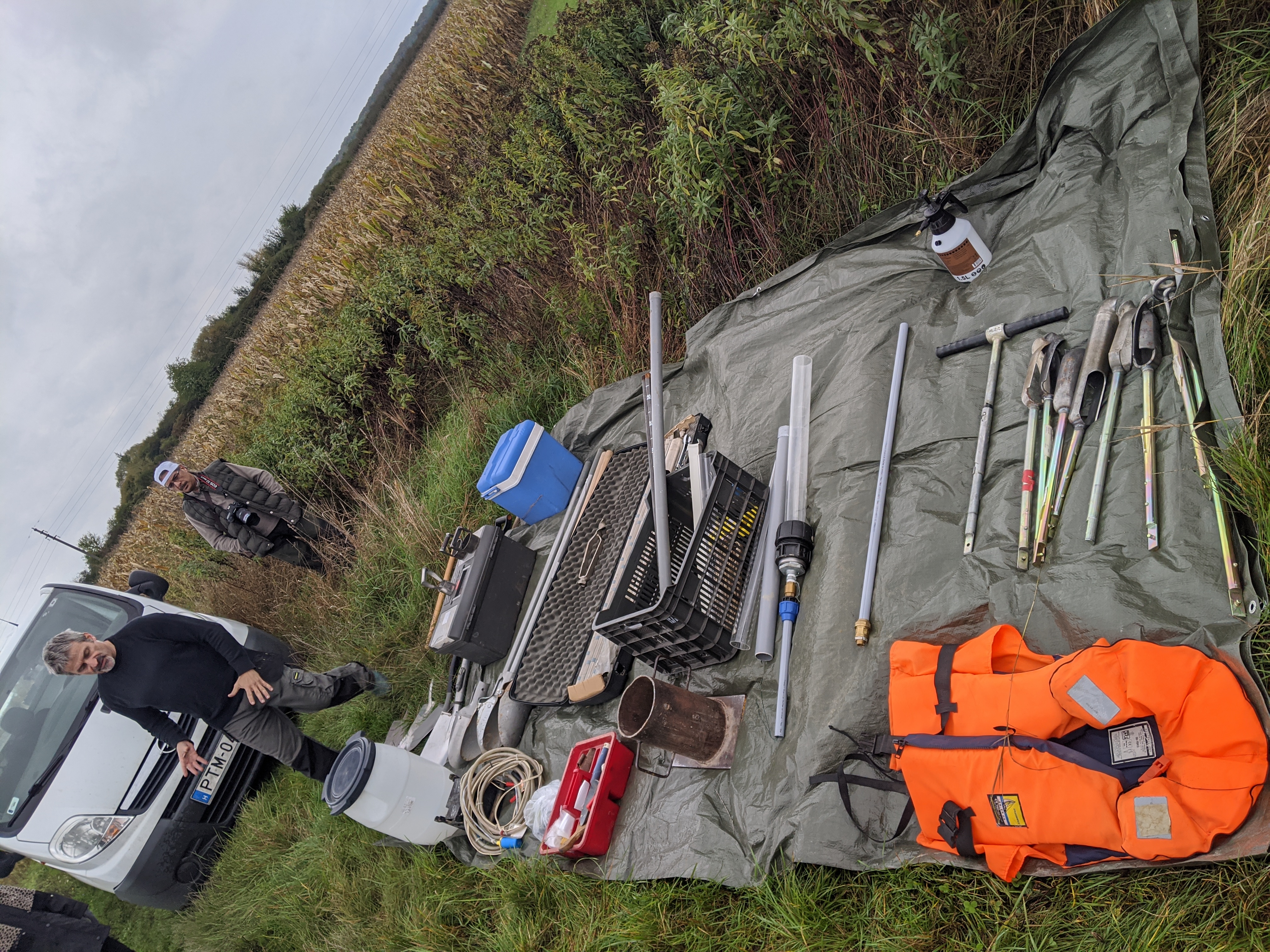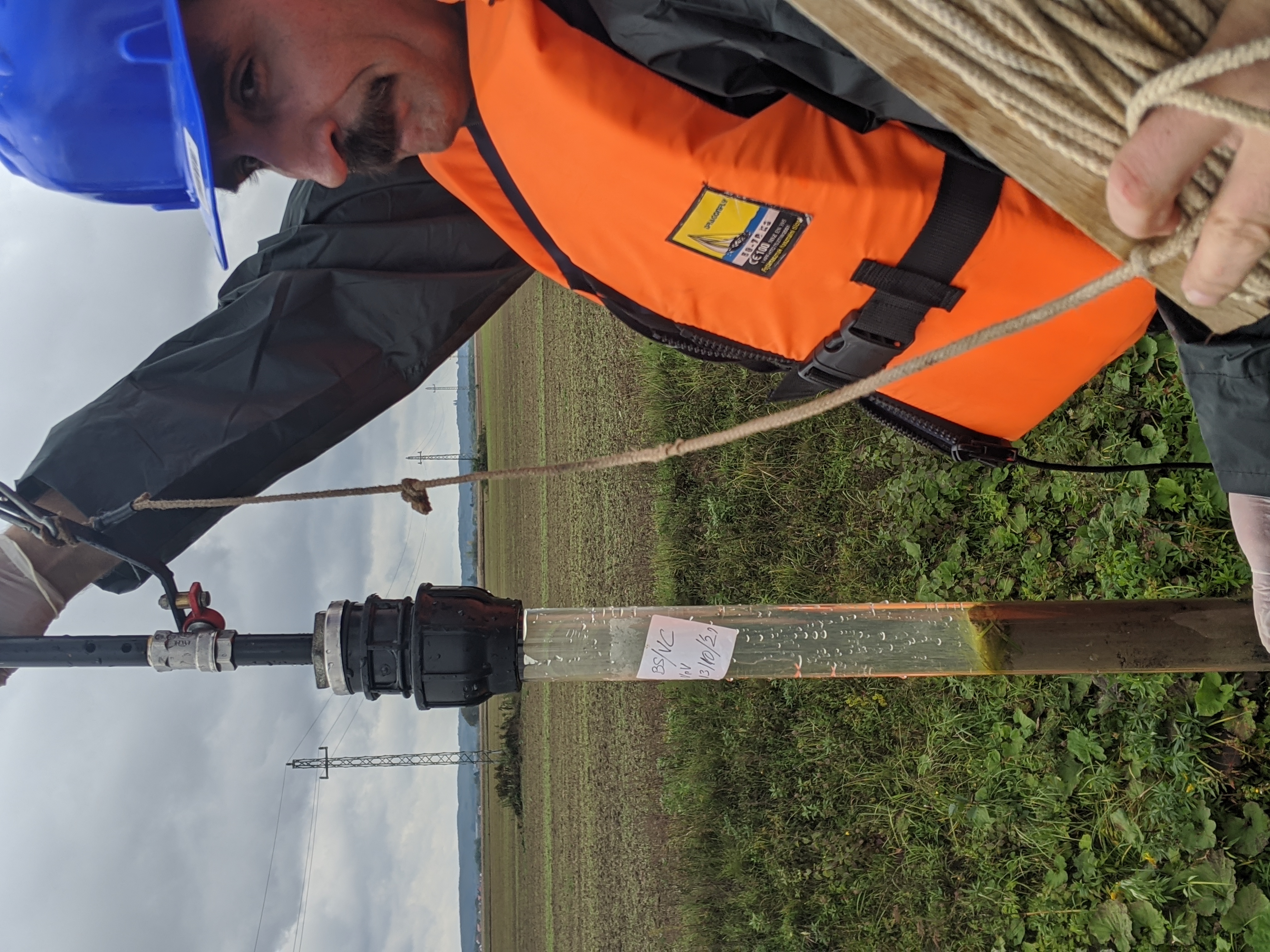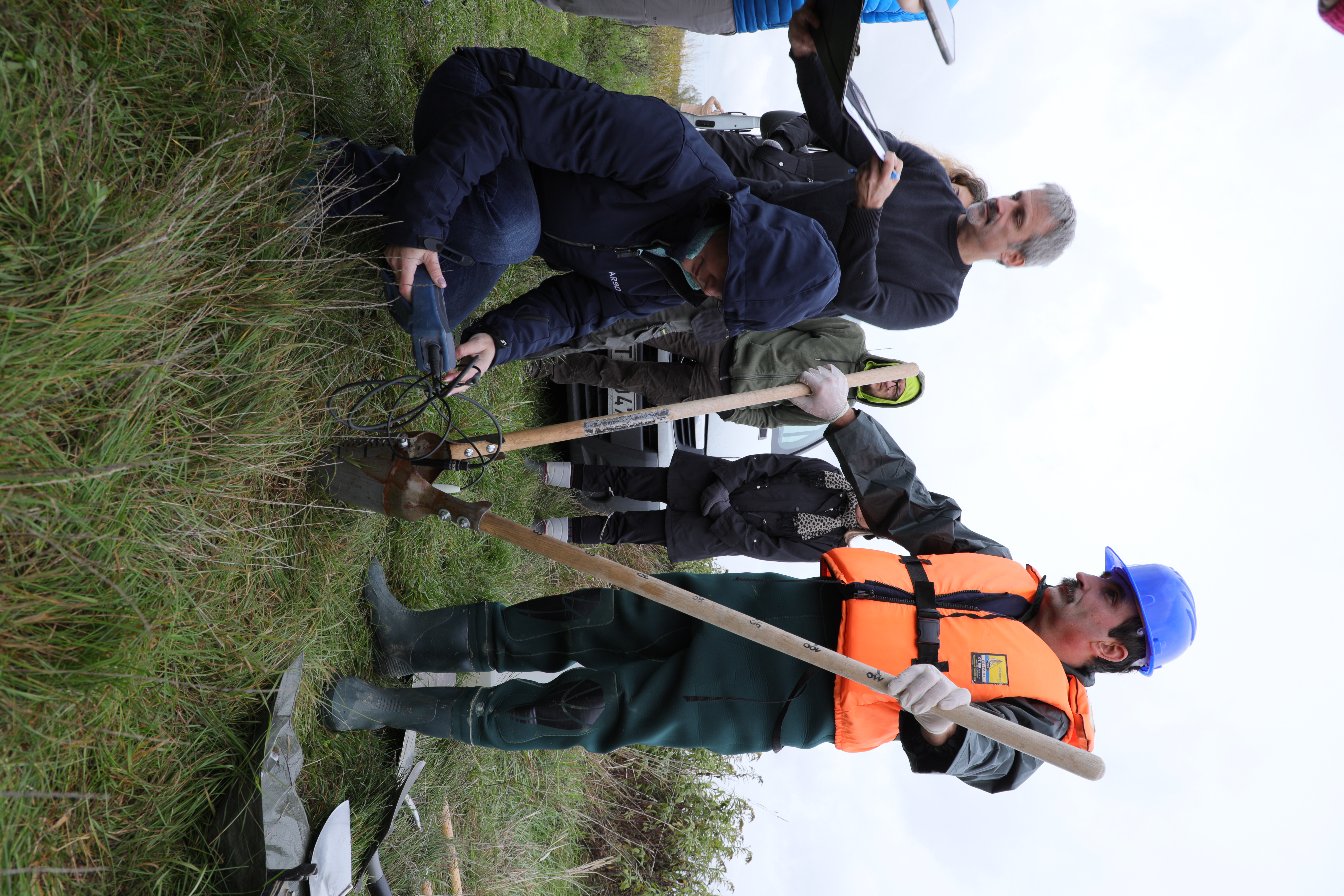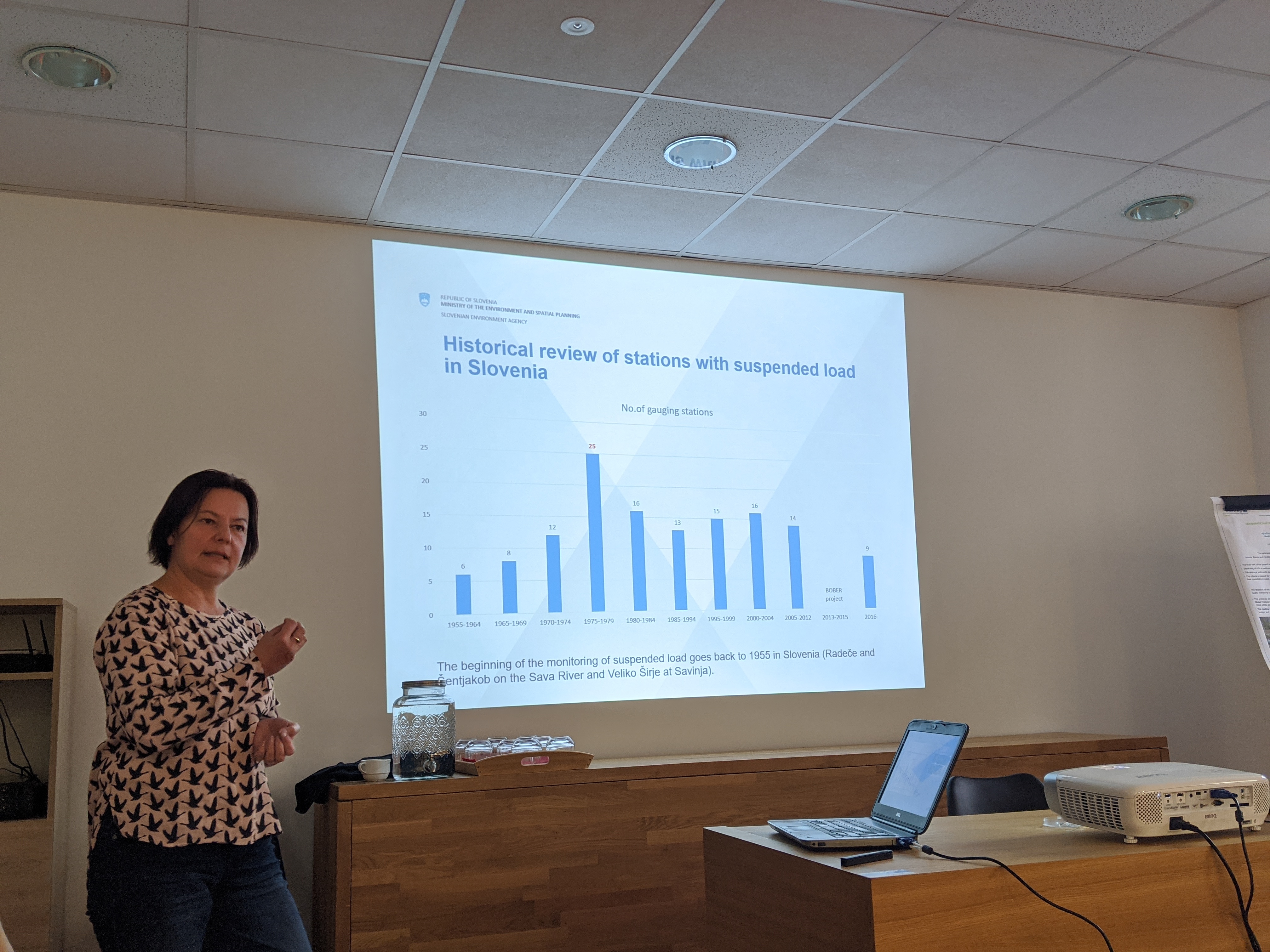SIMONA - WP8 small-group interactive workshop and training in Virovitica - CRO/SLO Stakeholders
20-10-2021
On 12th and 13th October, the SIMONA WP8 small-group workshop with training was organised in Virovitica, Croatia with a visit to Barcs, Hungary. The participants of this event were the Lead Partner team (GEO-ZS) with their invited stakeholder from Slovenian Environment Agency, HR-HGI-CGS project partners from Croatia and their stakeholders: ASPs from Croatian Waters and Public Institution Waters of Srpska and members from Croatian "National Laboratory" - "Bioinstitut" and international training group (scientific coordinator, reference laboratory representative and RO-TUCN partners). Within the SIMONA project extension, a new work package for sediment quality evaluation upgrade was created - WP8 with Activity 2:Capacity building: presentation, dissemination and integration of the SIMONA project results and upgrades within already existing events and small-group interactive training events in the PP. The main principle of this workshop was to "train the trainers" - which means that this workshop was mainly aimed at presenting, demonstrating and practising the sediment sampling methodology of the SIMONA project with the Croatian and Slovenian stakeholders. This two-day event was organised in Virovitica since it is the city closest to Barcs "experimental site" in Hungary where the sediment sampling upgraded activity - passive sampling system - is developed. On the first day, the international training team presented and demonstrated the passive sampling system design in Barcs, which consists of a JDS sediment box, passive samplers - membranes designed for the collection of PAHs, pesticides and heavy metals, and showed an online automatic sensor system. After the demonstration, we visited the Hungarian Water Authority Barcs Station where the water gauging station is in operation, where dr Jordan talked about the importance and criteria for passive floodplain and bottom sediment pore water sampling under WP8 activities. On the second day, the presentations were held by the trainers, project partners and national experts/practitioners of sediment monitoring. The presentations were concerning the general SIMONA project achievements in the final period, presentation of SIMONA sampling and laboratory protocols and its testing in Croatia, developed "Field Manual" as a guidance document to DRB Baseline sediment sampling, the passive sampling system application in Drava and Upper Tissa test area and monitoring of suspended solids in Slovenia. The theory was put into practice with the demonstration and training of the presented sampling methodology on a small stream in the vicinity of Virovitica. The entire event was successful and contributed to achieving the goals of the WP8 and SIMONA project in general - to exchange knowledge and experiences in sediment monitoring with national stakeholders and demonstrate the proposed sediment monitoring methodology in person on a local basis. Similar on-site training was already successfully organised at the end of June in Bulgaria, with the same purpose but for Bulgarian authorities, experts and stakeholders.
